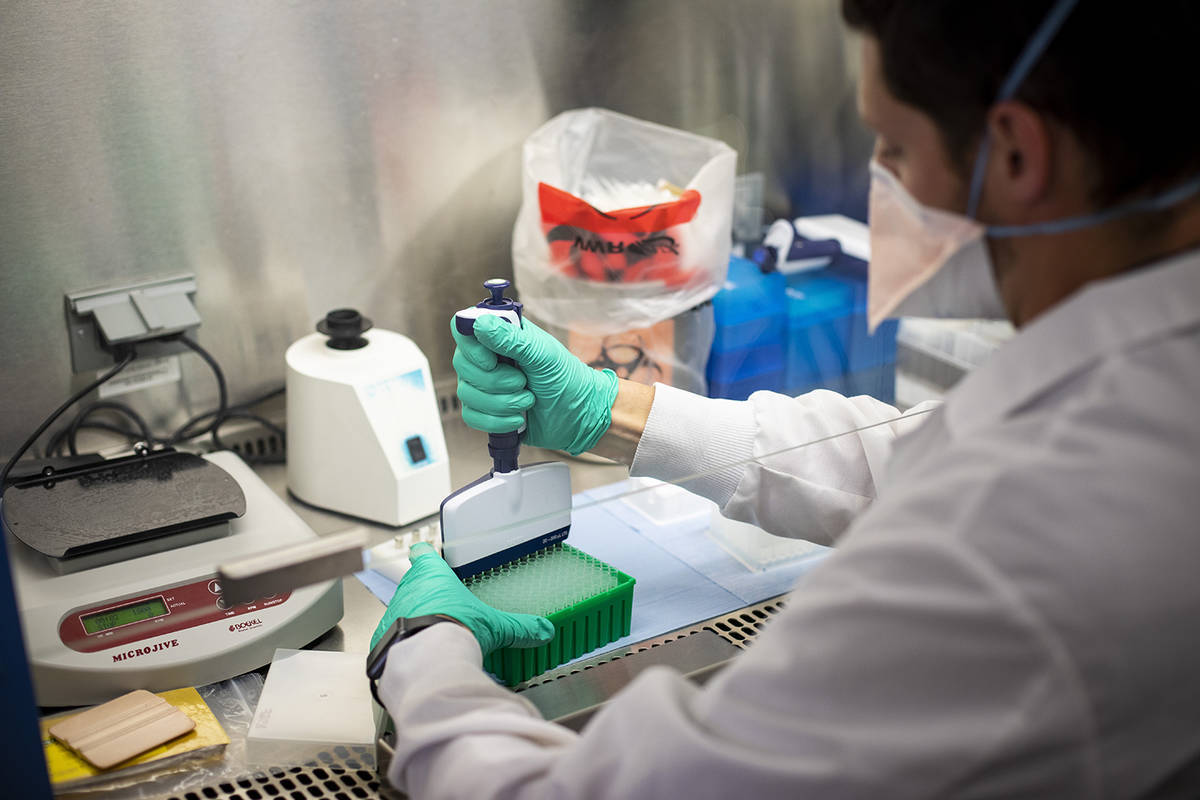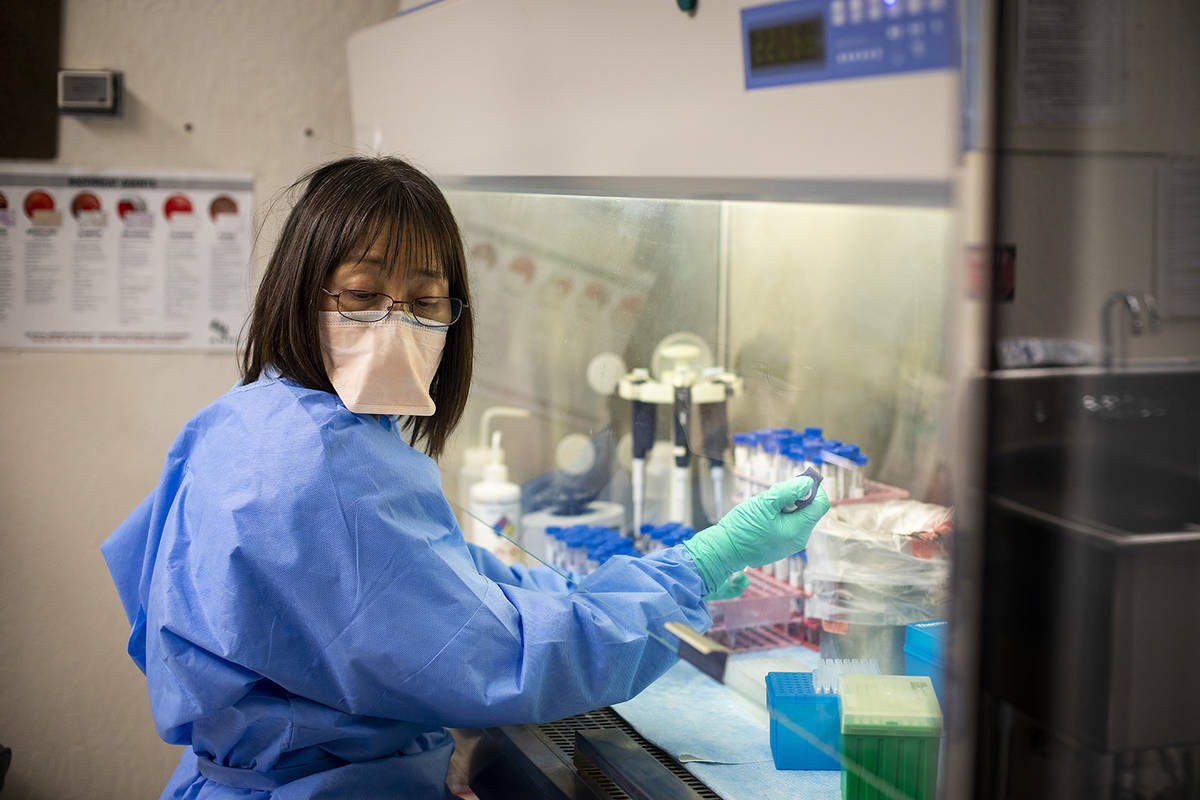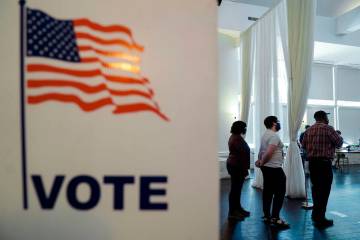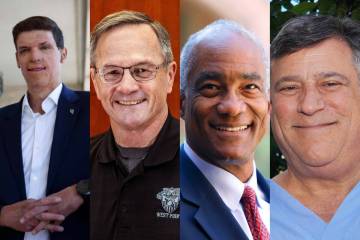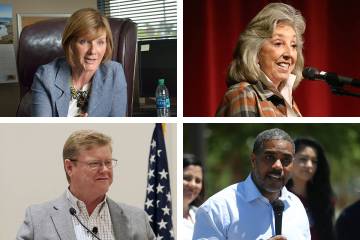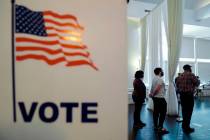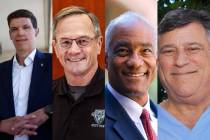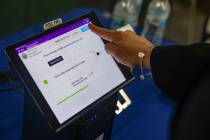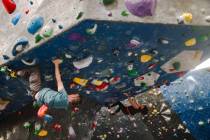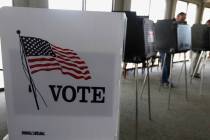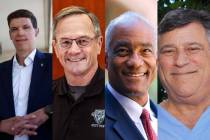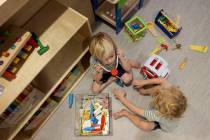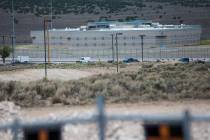As Nevada ramps up antibody testing, CDC issues accuracy warning
The federal Centers for Disease Control and Prevention warned this week that some coronavirus antibody tests are inaccurate and cautioned that even the better tests should not be used to determine who can safely return to work or school.
“Suffice to say, CDC is adequately worried about all the junk (antibody) tests that FDA let out on the market,” Mark Pandori, the director of Nevada State Public Health Laboratory, said in an email, responding to questions from the Review-Journal.
The CDC’s guidance comes at a time when public health agencies in Nevada are ramping up to offer the antibody tests to the public. The tests are designed to detect proteins in the blood that indicate a person has been exposed to the new coronavirus and may have developed some immunity.
Some believe the tests could become key to reopening communities and returning people to work, though it is not yet known to what degree antibodies protect an individual from reinfection and, if they do, for how long. But the new CDC warning suggests that current tests in many instances are not suited for the job.
UNLV Medicine, the clinical arm of the UNLV School of Medicine that treats patients, plans to starts offering antibody tests to the public sometime in June. But it is finding it challenging to obtain the more accurate tests.
“CDC has expressed concern that a lot of the antibody testing is still not up to speed,” said Dr. Michael Gardner, the medical school’s vice dean of clinical affairs.
Gardner’s program is seeking both a highly accurate test and one that can be done with a finger prick rather than a blood draw from the arm. Only a few tests meet both criteria, Gardner said, and when one does, “Everybody wants it.”
“The state, and I would argue, the country, need to know how many people have antibodies,” Gardner said. “That’s what is going to eventually stop the pandemic. Ultimately you get enough people who have immunity.
“For an employer, if a large percentage of your employees have antibodies and immunity, that would be reassuring for yourself and potentially for your customers.”
CDC guidance
The CDC states that antibody testing can play an important role in understanding how the virus has spread in communities and in identifying groups at higher risk for infection. But the national public health agency cautions against using antibody testing in certain key areas of policymaking.
Results from antibody tests, also referred to as serologic tests, “should not be used to make decisions about grouping persons residing in or being admitted to congregate settings, such as schools, dormitories, or correctional facilities,” the guidance states.
“Serologic test results should not be used to make decisions about returning persons to the workplace,” it said. “There should be no change in clinical practice or use of personal protective equipment (PPE) by health care workers and first responders who test positive” for the antibodies.
In giving its guidance, the CDC notes that all antibody tests are not created equal. Far from it.
The Food and Drug Administration initially allowed more than 100 commercial tests for new coronavirus antibodies on the market without review, creating what Scott Becker, chief executive officer of the Association of Public Health Laboratories, described as a “wild, wild West” environment glutted with tests of questionable quality. The FDA earlier this month began requiring that commercially marketed tests undergo review.
Antibody tests possess varying levels of “sensitivity,” which refers to the percentage of true negatives as opposed to false negatives, and “specificity,” which refers to the percentage of true positives.
“Specificity matters a lot in antibody tests,” said Pandori, with the state lab, which is located at the School of Medicine at the University of Nevada, Reno. “It’s nearly everything.”
In other words, a false positive for having antibodies would be of greater consequence to an individual than a false negative.
For a series of antibody studies in Northern Nevada, the state lab is using one of only a dozen tests that the FDA has approved under emergency use authorization. The state selected a test developed by Abbott Laboratories that has a 99.6 percent rate of specificity, meaning that it has four false positives out of a thousand tests.
False positives
However, the CDC cautions that even highly accurate tests will have significant numbers of false positives in places where the prevalence of the disease is low, which is thought to be most of the country.
It estimates that in communities across the country, less than 5 percent to as high as 25 percent of their populations have antibodies to the virus. Antibody studies have indicated that less than 5 percent of the population in Los Angeles County has antibodies in contrast to 21 percent of the people in hard-hit New York City.
Using the Abbott test with 99.6 percent specificity in an area where 5 percent of the population had coronavirus antibodies, 50 people out of 1,000 tested would have true positives for the antibody, and four would have false positives. However, if just 1 percent of the population at large was infected, there would be just 10 true positives and four false positives. Using a test with 95 percent specificity, there would still be 10 true positives but an astonishing 50 false positives.
In other words, low frequency of disease magnifies the margin of error and increases the percentage of false positives.
“People should know, in general, that an antibody test with a specificity of 95 percent or lower is not really helpful, for any disease,” Pandori said.
For greater accuracy in areas where 5 percent or less of a community has antibodies, the CDC recommended using a test with very high specificity, “perhaps 99.5 percent or greater.”
Southern Nevada testing
In Southern Nevada, representatives of University Medical Center and the Southern Nevada Health District each have said they expected to begin providing antibody testing to the public in early June.
But they offered few new details this week.
“As we approach the introduction of antibody testing at UMC, our team continues to carefully analyze all available data while frequently updating our plans to ensure a successful program launch,” UMC spokesman Scott Kerbs said. “We expect to have our state inspection for antibody testing early next week.”
On Wednesday, the UMC Governing Board ratified without comment the emergency purchase of $2.4 million in reagents for an antibody test developed by DiaSorin. The test, one of the dozen approved by the FDA, has 99.3 percent specificity, according to the federal agency’s website. Kerbs declined to elaborate on the expenditure.
A spokeswoman for the Southern Nevada Health District also declined to provide details of its plans for antibody testing.
“We have not rolled out a plan for community antibody testing,” spokeswoman Jennifer Sizemore said.
Meanwhile, health care providers can order antibody tests for their patients through private labs such as a LabCorp and Quest Diagnostics.
As members of the public curious about their immune status clamor for the test, the CDC emphasized that it is not yet known whether a person with antibodies can be reinfected.
The CDC cautioned,“Serologic testing should not be used to determine immune status in individuals until the presence, durability, and duration of immunity is established.”
Contact Mary Hynes at mhynes@reviewjournal.com or 702-383-0336. Follow @MaryHynes1 on Twitter. Staff writer Michael Scott Davidson contributed to this report.



